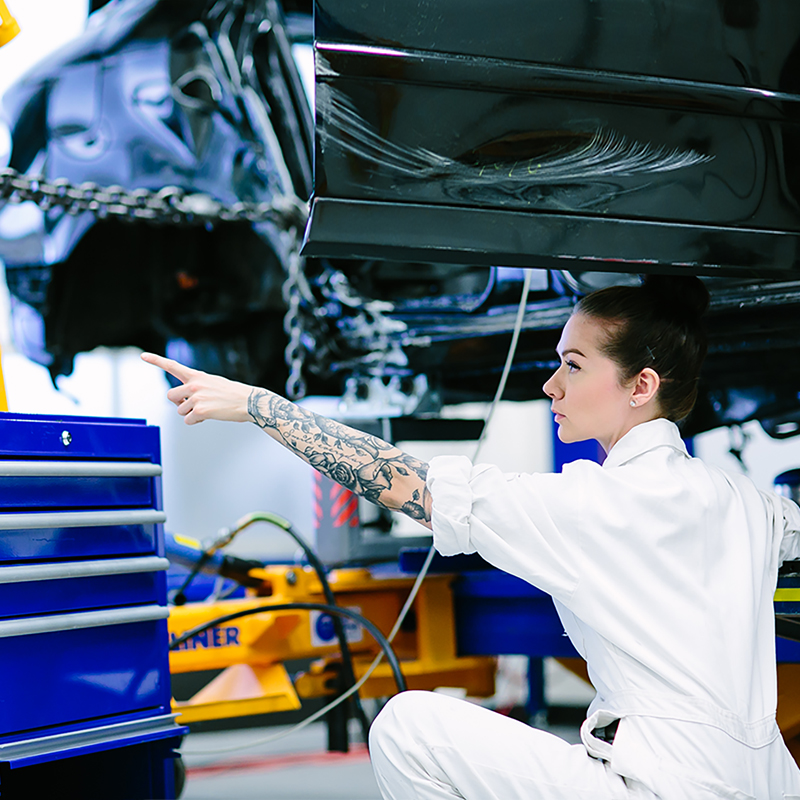Let's say you move from wherever you purchased your new vehicle, and the dealership is no longer near where you live. Or maybe your dealership closes, and the next closest dealership isn't so close after all. Or you buy a new vehicle, but you have already sustained an excellent working relationship with another auto shop. No matter what the situation is, warranty work on your vehicle may not be as restrictive as it seems. There were over 16 million cars sold in 2007, and most new vehicles come with a warranty for maintenance either for a period of time or a period of miles. While there may not be many serious issues with newer vehicles, the warranties can and should come in handy with regular maintenance and smaller but important issues that may in fact come up.
This article discusses what to do if indeed you find yourself in this position. A few things to consider with warranties since the dealer is separate from the company - if you have a problem not covered by the normal warranty, see if it is covered by a federally mandated warranty. Some of these go up to 100,000 miles, but dealers don't always admit that they exist. See your owner's manual for details - and if you don't have an owner's manual, borrow one for your model year. Most makers sometimes authorize repairs after the warranty is over, depending on the circumstances and the staffer's mood. While dealers can do this in some cases, few will take the risk. Dealers may think something is not covered when it really is.
One common misconception is that you don't have to take your vehicle to the a dealership to have something taken care of that is covered and approved under the warranty. You can take your car to any certified mechanic (ASE), and it will not void the manufacturer's warranty. Of course, before deciding whether or not to go to the dealership or an independent service shop, think about the repairs and the budget you have. Many dealerships tend to add or recommend services which may not be necessary at that exact time. Private auto repair facilities are more likely to provide the necessary services without trying to push any other products closely associated with the car company. Auto repair shops other than the dealership can still communicate with the car company to discuss the warranty coverage to see if it approved. Also, similarly, for work not under warranty like routine oil changes or tire rotations, private service shops have less overhead costs making it less expensive than a dealership. This will not void your warranty in most cases. However, you should keep records and receipts for any of these services.

Used vehicles sometimes also come with limited warranties which do not always require repair to be done by the dealership. State laws hold dealers responsible if cars they sell don't meet reasonable quality standards. These obligations are called implied warranties - unspoken, unwritten promises from the seller to the buyer. However, dealers in most states can use the words "as is" or "with all faults" in a written notice to buyers to eliminate implied warranties. There is no specified time period for implied warranties. If the manufacturer's warranty still is in effect, the dealer may include it in the "systems covered/duration" section of the Buyers Guide. To make sure you can take advantage of the coverage, ask the dealer for the car's warranty documents. Verify the information (what's covered, expiration date/miles, and necessary paperwork) by calling the manufacturer's zone office. Make sure you have the Vehicle Identification Number (VIN) when you call. Like a warranty, a service contract provides repair and/or maintenance for a specific period. But warranties are included in the price of a product, while service contracts cost extra and are sold separately.
So let's say you would like to take your car to a private service shop rather than your dealership for some work you need. Most companies will first need to approve that the item is actually covered under the terms of the agreement, and that the maintenance is carried out and documented by an ASE approved mechanic. This will usually be the main checklist for getting it approved. Many drivers have common questions when it comes to warranties, especially with the topic of billing. For example:


Do I have to pay upfront for the work or the part being done?
No, you will not have to pay upfront for the costs. If there is a cost upfront, it could be a deductible if applicable. Usually, auto warranty contracts pay the repair shop directly. Usually, the repair shop will contact those responsible for the warranty coverage for authorization to repair the part.
Will all claims be paid in the car service centre near me future too?
The key to knowing how much coverage you have or could have depends on the strength of the warranty you have. Some auto warranties are limited; others extend out but for less time. Knowing how much your vehicle is covered is important to know in order to be prepared for any repairs that may be necessary. Claims are handled individually, and again, will be paid to the repair shop you choose - but be sure to check to see if it is approved by your car company.
Factory warranties can be great for the beginning life of your automobile, but not many last into the later years of your car's life. Factory warranties usually tend to cover specific things, and can be called different names. Bumper-to-bumper warranties are found on almost all new cars. This warranty is called bumper-to-bumper because it tends to cover almost the entire car in some way, with exception to specific wear items. Wear items will normally include the tires, oil, oil filter, and brake components, and sometimes even the battery, though many manufacturers are starting to give a 3 year warranty on batteries as well. It should be noted that for most claims, especially those involving the power train, will only be covered if the vehicle has been regularly serviced as per the manufacturer's specifications. In most cases, the factory car warranty plan is limited, meaning it only covers problems caused by manufacturing errors or defect.
Due to federal government requirements, most exhaust components are covered by a 2 year/24,000 mile warranty against corrosion. In addition, an 8year/80,000mile warranty is required for the catalytic converter and any on board diagnostic devices equipped on the vehicle. These warranties cover the ability to pass emissions testing as well as any design or defect issues. Also required by federal law, all seat belts, restraints and air bag related components must be covered by a 5year/50,000 mile warranty against defect or malfunction.
Most manufacturers offer at least a 5year/unlimited mileage corrosion warranty that deals with any problems caused by corrosion to the body panels or chassis, specifically perforation rust.
As explained on the website autos.com, "what a warranty is then, a promise by the manufacturer to stand behind its product in the case of any manufacturing or design defects. Damage due to the driver, accidents, severe weather and disasters are not normally covered unless it can be demonstrated the damage was caused by some manner of design issue. In this case, a factory recall may be started in order to correct the problem at the manufacturer's expense."
Extended warranties are also a popular solution for vehicles whose bumper-to-bumper coverage has run out. It is recommended to do some major research before purchasing this coverage, if you think it is right for you. The extended warranty company will base the coverage on what they see as the condition of the car. If you have some warranty coverage still left, it would not yet be necessary to consider this. But it will work basically the same as the original coverage. As autos.com explains, "buying an extended warranty can make sense, for then you still have coverage for items that can break or wear out and can, without insurance, cost you a lot to repair. For these types of vehicles, extended warranty companies offer what they call "stated component" extended warranties. The extended warranty policy states exactly what components are covered. These may include the engine, transmission, suspension, drive train, ignition, radiator, and electrical system."
Warranty coverage can seem confusing and at times, intimidating. Being knowledgeable and prepared will help to relieve some of the worries you have. Choose a repair shop you are comfortable will, and they, not just your dealership, should contact the warranty coverage representatives to get authorization if that is what you desire. Know what coverage you have and for how long, and communicate with those involved. Cars can be expensive without warranties, but unfortunately, so can not knowing anything about your car's warranty and what you are allowed to do with it.